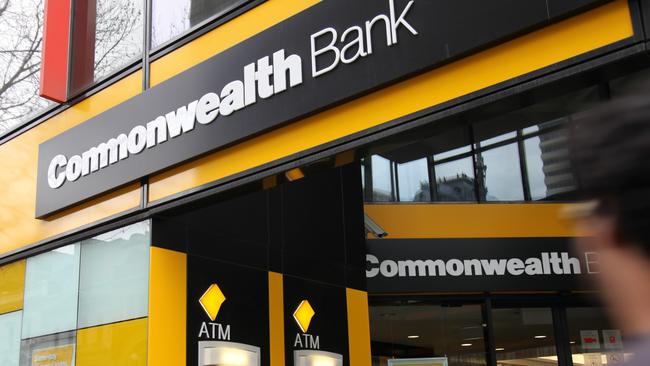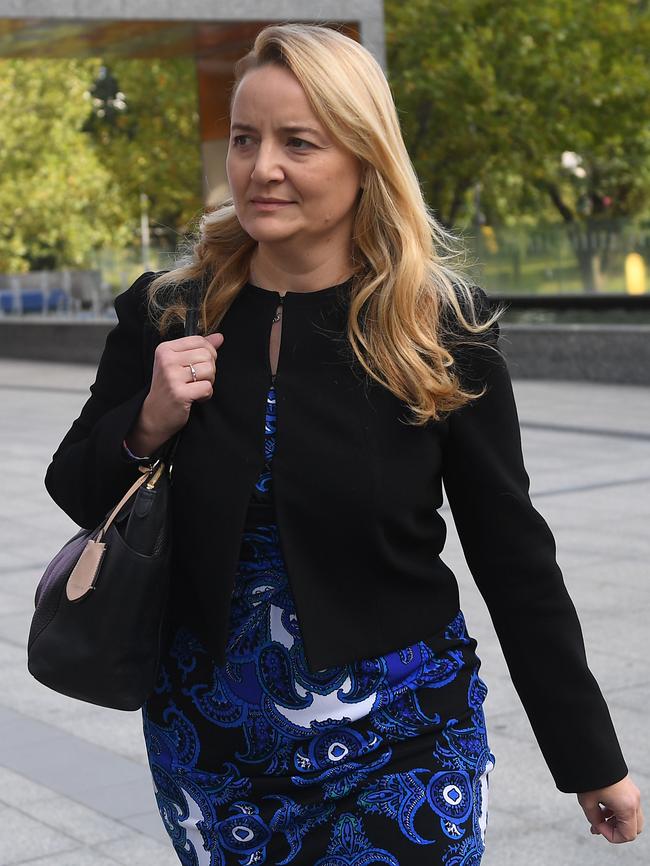Will we ever trust our banks again?
THE behaviour of the banks is disgusting. But the current grandstanding of politicians who opposed the banking royal commission is almost as sickening, writes Terry Sweetman.
Rendezview
Don't miss out on the headlines from Rendezview. Followed categories will be added to My News.
IT’S always good for a chortle in our family when I recall my role as a teller in the school bank.
To share the mirth you have to understand that I have a certain history of financial ineptitude and irresponsibility.
Calamitous as some of my decisions have been I still recall a sense of solidity and inviolability that came with the cash drawer, the passbooks and the money boxes painted up as Martin Place banks (and with a clever little swivel thing under the slot that made it hard to raid the pennies).
It all spelled “trust”, something that was always there behind the barred and darkly varnished tellers’ cages of my youth and young adulthood.
Experience has diluted that trust and what remains is rapidly evaporating as the financial services royal commission turns up the heat.
The inquiry has barely begun and many men and women in suits are still to be sweated but already the famous “four pillars” of our banking industry are looking more like the broken columns of a Greek temple.
And AMP, one of the other elements of Paul Keating’s original 1990 invention of the “six pillars’’, is looking a bit shabby (the other was the then National Mutual).

The commission is still turning over rocks but the insurance giant stands shamed by revelations that it charged fees for services that were not provided to clients and that it lied to the Australian Securities and Investments Commission over the issue no less than 20 times.
If it cared so little for the authority of ASIC, you might reasonable wonder where clients stand in its scale of respect.
How big this scam might be can be judged by the fact that the big four banks — Commonwealth, ANZ, NAB and Westpac — and AMP have paid back $219 million compensation to 310,000 financial advise customers charged fees for no service.
CBA — an officer of which conceded it could be awarded the Gold Medal for dodginess in providing no service — has paid back $119 million alone.
Evidence of services fees levied long after clients died has shown that CBA would literally steal the pennies from a dead man’s eyes.
And it goes way back.
A concession had to be wrung out of CBA’s Marianne Perkovic that a Deloitte report as far back as 2012 revealed systematic problems and that at least $700,000 in ongoing services fees were being charged to more than 1050 clients who were allocated to more than 50 financial planners who had long left the business.
That’s big bikkies in my world but when you do the long division, it suggests that the victims were those of relatively modest means.
The problem is not that AMP and CBA are seemingly built on a base of ethical jelly.
The problem is that we don’t know (yet, at least) how many other outfits might be putting their hands out for fees on services that are not provided or performed perfunctorily.
Anyone building up a financial base for immediate pleasure, for pending retirement or actual retirement would be fully aware just how much he or she pays in adviser fees, sometimes at multiple levels.
You might receive newsletters, regular statements and even once-a-year face-to-face consultations but after the revelations of recent days you can never be quite sure how much real advisory muscle goes into them.


The tragedy is that this inquiry was so long in coming and so bitterly resisted by the industry and its political friends, including Prime Minister Malcolm Turnbull who dismissed it as “crass populism”.
Ever since the mid-1980s when payrolls were credited to bank accounts and automatic teller machines began to spawn around the nation we have become systematically enmeshed with the finance world.
The coincidental introduction of a national superannuation scheme drew us all further into the web of a world we barely understood but were conditioned to trust.
Now an entire generation (mine) is intimately concerned with how it works and whether it deserves our trust. And there are other generations hard on our heels.
This commission is a last chance to get it right — to put it all back together — before shaken trust spreads through the industry like an earthquake fissure.
If the behaviour of financial institutions is disgraceful, the latter-day grandstanding of some politicians who had fought against this inquiry in the media and in the Parliament since 2014 is disgusting.
We are now getting an inkling of why the industry was so against it and are entitled to wonder why the Government was so adamant it wasn’t needed until it was forced to act last November.
For four years this government stonewalled calls for an inquiry and made it obvious who were its friends.
Now it invites judgment on the friends it keeps.


